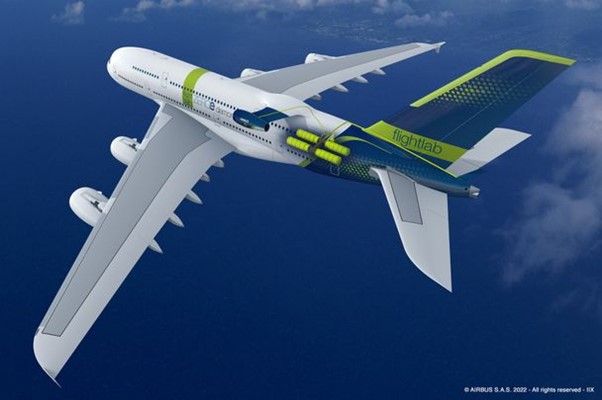
Airbus reports that its aim of getting hydrogen-powered flight off the ground gets closer by the day thanks to progress in the technology building blocks behind ZEROe, the company’s low-carbon emission aircraft concept.
Airbus is maturing two hydrogen-based propulsion technologies in parallel: Hydrogen combustion and hydrogen fuel cells are at the heart of ZEROe. H2 fuel cells are also under study as a source of non-propulsive energy.
According to the statement:
“Hydrogen combustion (H2C)
“A joint venture between Airbus and Safran, has successfully completed a proof-of-concept of a hydrogen ‘conditioning system’ adapted to power an aircraft turbine engine. Given that hydrogen has to be stored at a bone-numbing -253°C, it needs to be ‘conditioned’ to reach an acceptable temperature and pressure for combustion in the aircraft engine. That’s the system’s job.
“Hydrogen fuel cells
“Recently Airbus revealed its hydrogen fuel cell engine concept which has been put through its paces at the company’s E-Aircraft Systems test house near Munich. Over six months of ground testing, expert teams have joined forces to achieve the milestone of running the fuel cell at full power: 1.2 megawatts (MW).
“Non propulsive energy
“The third project is a demonstrator for non-propulsive energy (NPE), the energy which powers cabin systems and aircraft control surfaces, for example. This power – generally around 5% of the aircraft’s needs – traditionally comes from the kerosene-powered APU, or auxiliary power unit, located in the aircraft tail cone.”
For more information
https://www.airbus.com/en/newsroom/stories/2023-06-at-airbus-hydrogen-power-gathers-pace
(Image: Airbus)

